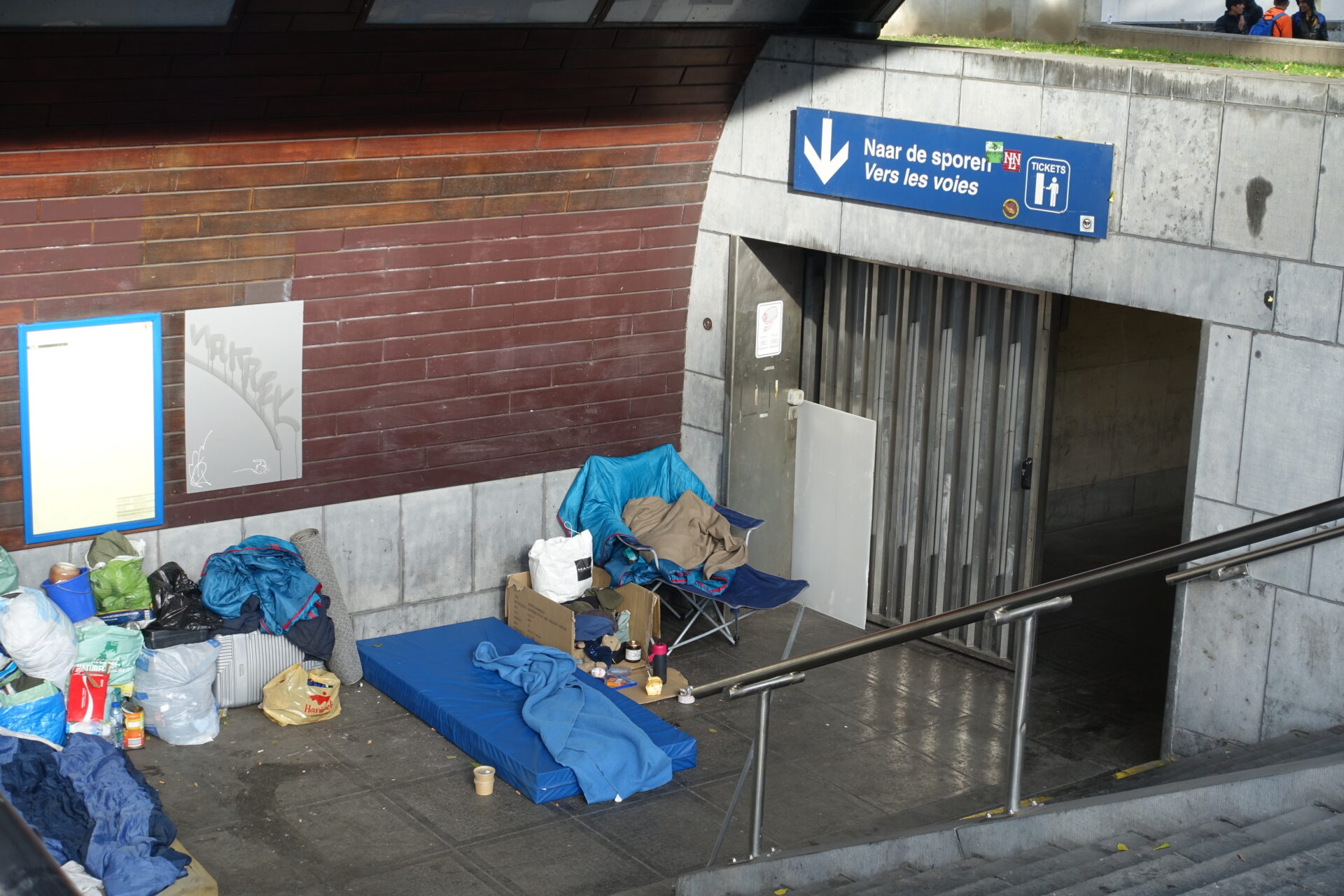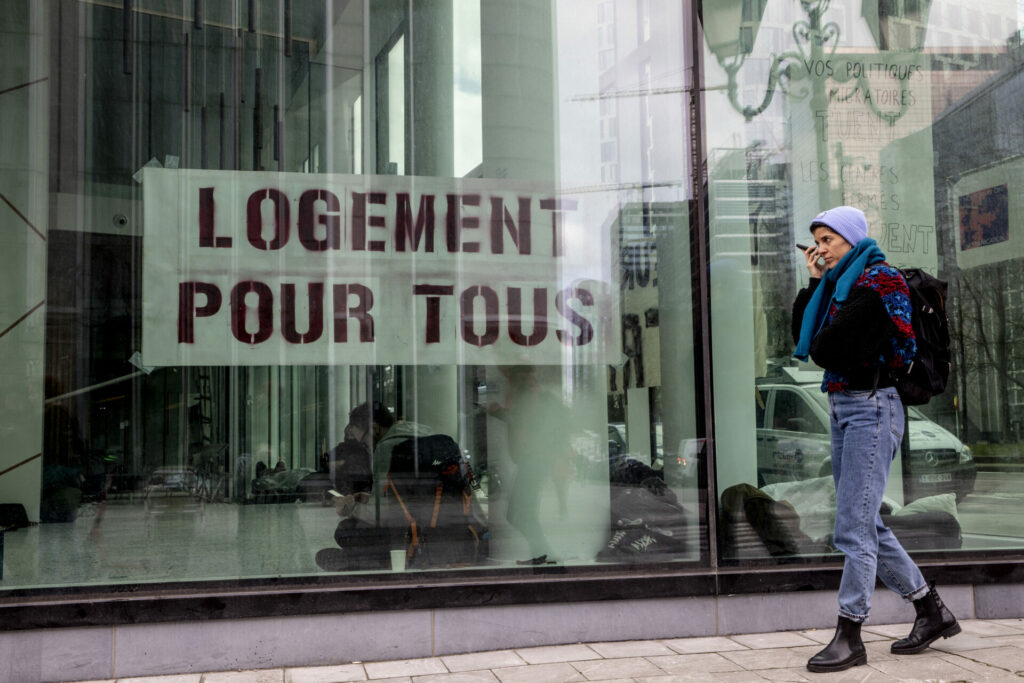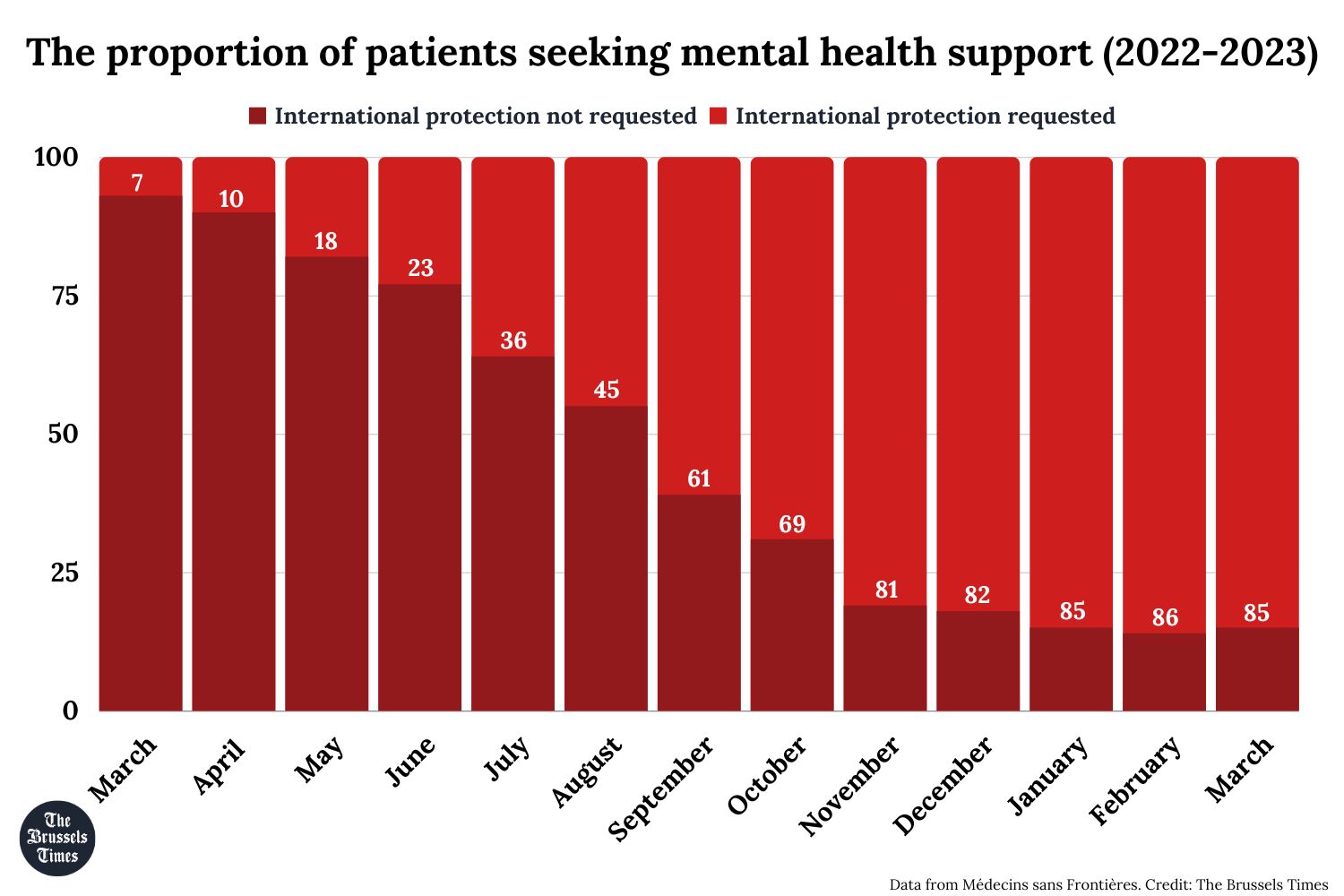The condition in which many asylum seekers find themselves in Brussels would raise eyebrows in most European countries, but in Belgium, it has been normalised, civil society organisations lament.
Since October 2021, Belgium has been failing to provide asylum seekers with the shelter they are legally entitled to, leaving many without shelter and sleeping rough. Without a change to Belgium's current policy, some applicants may even be without housing until 2024, various civil society organisations report.
"Currently, the number of people on the waiting list for reception hovers around 3,000, which is still far too high," policy advisor at Refugee Work Flanders, Thomas Willekens, told The Brussels Times.
Belgium's agency for asylum reception, Fedasil, has been condemned more than 6,761 times for its failure to provide shelter; the European Court of Human Rights has issued more than 1,656 interim measures to ensure that immediate action is taken.
While this initially allowed people to receive shelter within several days, obtaining a reception place has now become virtually impossible, particularly for many single men, as the government blatantly disregards the convictions. "We are now meeting people who applied for asylum in September and still have not received shelter," Willekens said.
Suicide and violence
The joint report by Médecins Sans Frontières (MSF), Caritas International, Ciré, Dokters van de Wereld, Refugee Work Flanders and Belrefugees revealed the human impact of the reception crisis and the "harrowing living conditions" of asylum seekers.
Aid workers have observed a significant number of health conditions in asylum seekers, including respiratory and skin problems, psychotic disorders, post-traumatic stress disorder and depression. In one year, MSF's mental health service saw the percentage of applicants without shelter rise from 5% to 84%.
Willekens noted that many have attempted suicide and faced physical, psychological and sexual violence as well as discrimination. Most acts of violence go unreported.
In Belgium, minors and families are given priority for shelter as men are thought to be "less vulnerable" – a line of reasoning contested by the report: "Everyone needs a roof over their heads. It is high time we stopped using this misconception to justify denying people help."
Meanwhile, humanitarian services and NGOs offering shelter, medical care, social support and legal assistance to asylum seekers are "untenably burdened."
Structural incapacity
Willekens recognised that the government had made an effort to increase the number of sheltered places, but stressed that there were still not enough to meet the demand and solve the crisis. "As we have said before, this is a humanitarian crisis – these figures show that – but the government's response remains inadequate."

Asylum seekers' shelter near the Immigration Services building. Credit: The Brussels Times / Lauren Walker
"Meanwhile, the Immigration Department is still telling men who are seeking international protection that there are not enough places. If this current policy remains unchanged, we fear this situation will further deteriorate."
Willekens argued that the situation has been normalised in Belgium: "People in the Netherlands are shocked when I share stories of what is happening in Belgium, but here people don't even bat an eyelid."
Related News
- A 'really dire situation': Molenbeek clears reception centre
- 'Stop the Reception Crisis' collective demand meeting with Federal Government
The organisations are calling for urgent additional action, such as a mandatory plan for sheltered places to be spread across municipalities and activating the Federal phase of the disaster plan.
They are also calling for more transparency with regard to access, concluding that "the system of reception and protection must be clear and consistent, with uniform procedures. People must be able to rely on fair treatment and timely processing of their requests, without unnecessary delays or obstacles."


